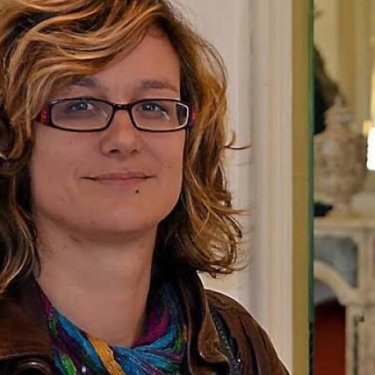RSF and JED condemn Reuters journalist’s summary expulsion from DRC

Reporters Without Borders (RSF) and its local partner, Journalist in Danger (JED), condemn Reuters correspondent Sonia Rolley’s summary expulsion from the Democratic Republic of Congo and call on the Congolese authorities to give the official reason for her expulsion and to stop making it harder for foreign journalists to obtain accreditation.
A French journalist who recently joined the British news agency, Rolley was put on a flight out of the country on 8 November without being time to collect her personal effects and without any official explanation from the authorities.
“This summary expulsion of a journalist who is used to covering the DRC is the latest of a series of attacks on press freedom and journalistic independence as this country approaches important elections. We ask the authorities to clearly explain the reason for her expulsion and to stop complicating the process whereby foreign reporters obtain accreditation.”
Said Sadibou Marong, the head of RSF’s sub-Saharan Africa bureau.
A long-time reporter for Radio France Internationale (RFI), Rolley has authored several major investigative reports on the DRC and was a leading contributor to Congo Hold-Up, a recent series of reports by a journalistic consortium on Congolese corruption that was based on leaked bank records.
After being allowed to enter the country on a courtesy visa in September to cover a climate conference, she had been promised accreditation as Reuters bureau chief in the DRC and had obtained written confirmations that her accreditation was in the works.
Nonetheless, the tourist visa on which she had been allowed to remain in the country was abruptly rescinded on 8 November when she went to the General Directorate for Migration (DGM) in response to a summons. She was taken from the DGM to Kinshasa airport and was put on a flight to Paris, where she was handed her passport on arrival.
Rolley had already paid 2,000 US dollars for a 12-month press accreditation, although foreign and Congolese journalists working for international media are usually given accreditation for six months at time, for which they pay 1,000 US dollars.
Rolley’s expulsion comes amid an increase in threats and harassments for the correspondents of international media outlets.
“Sonia Rolley’s expulsion sends a worrying signal at time of growing tension on the security and electoral fronts,” JED secretary-general Tshivis Tshivuadi said. “Ever since hostilities resumed between the Congolese army and M23 rebels in the east of the country, the authorities have not hidden their desire to muzzle free and independent media, accusing them of playing into the enemy’s hands.”
In its latest annual report on its monitoring and analysis of the media situation and press freedom in the DRC, JED said it has registered 124 press freedom violations since the start of the year, somewhat more than the 110 registered in 2021 and the 116 registered in 2020.
RSF and JED point out that the violations are compounded by a decline in the security situation for media personnel and a reduction in the space for journalistic freedom in a presidential election year.
